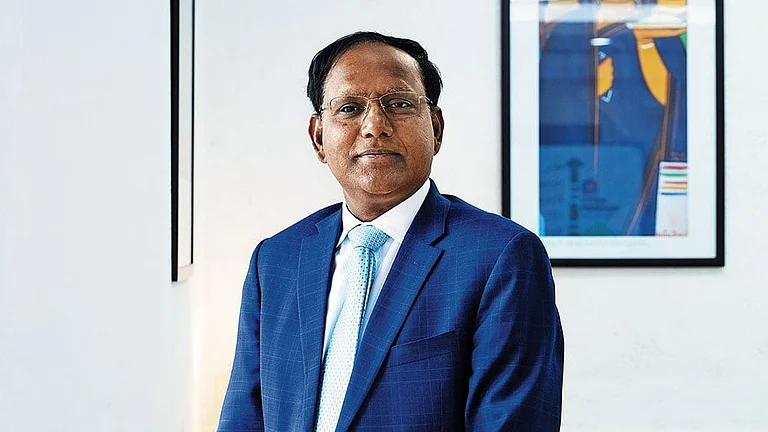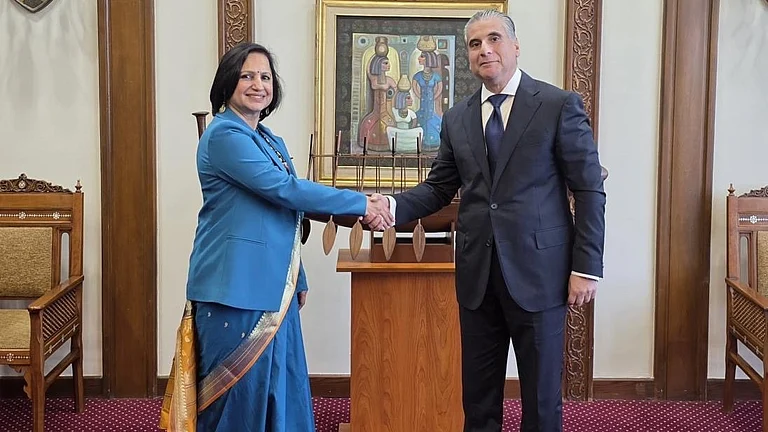In April 2021, Shibashish Sarkar, the erstwhile Group CEO of Reliance Entertainment, set up a Special Purpose Acquisition Company (SPAC). It was created as a blank check company to explore acquisition opportunities in media and entertainment (M&E) companies across India, and other Asian, North American, and European countries.
Called International Media Acquisition Corp (IMAC), the SPAC filed for a $230 million IPO and was listed on the Nasdaq. Sarkar helmed the Delaware-based company as Chairman and CEO, and roped in Sanjay Wadhwa, Managing Partner of AP International Group, as Director. Walt Disney India’s Vishwas Joshi also came on board as Chief Financial Officer.
One year down the line, though, things are beginning to unravel at IMAC as stockholders of the company opted to redeem most of their investments. Investors redeemed over $208 million of the $230 million raised by the company, exercising their right under the preliminary prospectus filed with the US Securities and Exchange Commission (SEC) on July 26, 2021.
The document stated, “We will have until 12 months (or up to 18 months if our time to complete a business combination is extended as described herein) from the closing of this offering to consummate our initial business combination. If we are unable to complete our initial business combination within the applicable time period, we will redeem 100% of the public shares at a per-share price, payable in cash, equal to the aggregate amount then on deposit in the trust account including interest earned on the funds held in the trust account and not previously released to us to pay our taxes, divided by the number of then outstanding public shares, subject to applicable law and as further described herein.”
Running Into Rough Weather
Sarkar had acquired Anil Ambani’s Reliance Entertainment through IMAC, but that also meant inheriting all its debts and legal wrangles. He joined the Ambani company in 2007 as the Chief Financial Officer and took on the role of CEO in 2019. During his tenure, he changed the business strategy for the production studio, banking popular franchises like Rohit Shetty’s Golmaal and Singham and Vidyut Jamwwal’s Commando, along with duds like Vidya Balan-starring Bobby Jasoos and Ranbir Kapoor-starring Besharam.
While setting up IMAC, Sarkar wanted to explore assets in regional OTT and multiplex space to build a comprehensive portfolio of content, distribution, and exhibition. Reliance Enterprises’ 15-year legacy of producing and distributing films, gaming, and animation content in Hindi and regional languages was a natural fit in his gameplan since the Ambani family was keen to offload this division and Sarkar knew its workings given his stint in the organization.
However, things did not go as he planned.
As per its January to March 2022 quarterly filing with the SEC, IMAC reported that it has been unable to generate any operating revenues. Its only activities from January 2022 through March 2022 were organizational activities and identifying a target company for a business combination. Moreover, the company does not expect to generate any operating revenues until after the completion of its initial business combination.
During the JFM 2022 quarter, IMAC suffered a $315,979 net loss resulting from franchise tax expense of $48,767, and formation and operating costs of $409,908. It also used $312,023 net cash in operating activities. This was offset in part by a change in the fair value of its warrant liability of $119,535 and interest and dividend income on investments held in the trust account of $23,161.
Now, IMAC has until August 2, 2022, to consummate a business combination, which could be extended up to a total of 18 months. If this does not occur, or the company sponsor, Content Creation Media LLC, does not request such an extension, the company will be liquidated and dissolved.
Changing Trends In M&E
According to John Harrison, Sector Leader for EY Global Media & Entertainment, India’s M&E market is strategically interesting to global players seeking to monetize content and capture growth. They could either be a participant via licensing or other commercial arrangements or as an outright owner through an in-bound acquisition or organic investment approach.
“There has been a strong focus by global streaming platforms in the last year to invest in local content and originals, as they look to gain scale. This is a favorable backdrop for content creators, who are seeing both global and local streaming services invest in greater volumes of content with larger budgets,” he wrote in a report.
“Globalization is critical to M&E companies looking to build scale, open new markets, and remain competitive. Those looking to seize the upside of growth should set their sights on India. With more than a billion people, India offers a massive M&E opportunity across almost every type of media.”
Deloitte too noted that the M&E industry, embedded in the business of imagination, is riding a wave of tremendous opportunity amid the turbulence that attends times of significant change. The global consultancy agency especially sees the “streaming video industry mature as metrics evolve beyond subscriber counts to lifetime customer value, and existing business models evolve to find greater profitability amid global competition.”
However, cracking this code is easier said than done. Reliance Entertainment learnt it the hard way after theatres cautiously reopened last year. The studio house hoped its Bollywood productions, Akshay Kumar-helmed ‘Sooryavanshi’ and Ranveer Singh-starring ’83; would help it recover lost ground.
While Sooryavanshi was successful—a month after its November 2021 release its gross collection across India stood at Rs 230.14 crore—the much-hyped 83 failed to live up to expectations. Two weeks after the release of the sports drama, box office analyst, Taran Adarsh, tweeted that it had managed to collect Rs 97 crore at the Indian box office.
The evolving socioeconomic dynamics in M&E in a post-pandemic world have scuppered the business plans of many media companies, from Netflix to Amazon. These organizations are finding it challenging to drive innovation and deal with competition while retaining viewers who have a plethora of entertainment options at their fingertips. This constant shifting of goalposts to keep pace with changing customer behavior is also putting pressure on their business models like IMAC has realized.
































